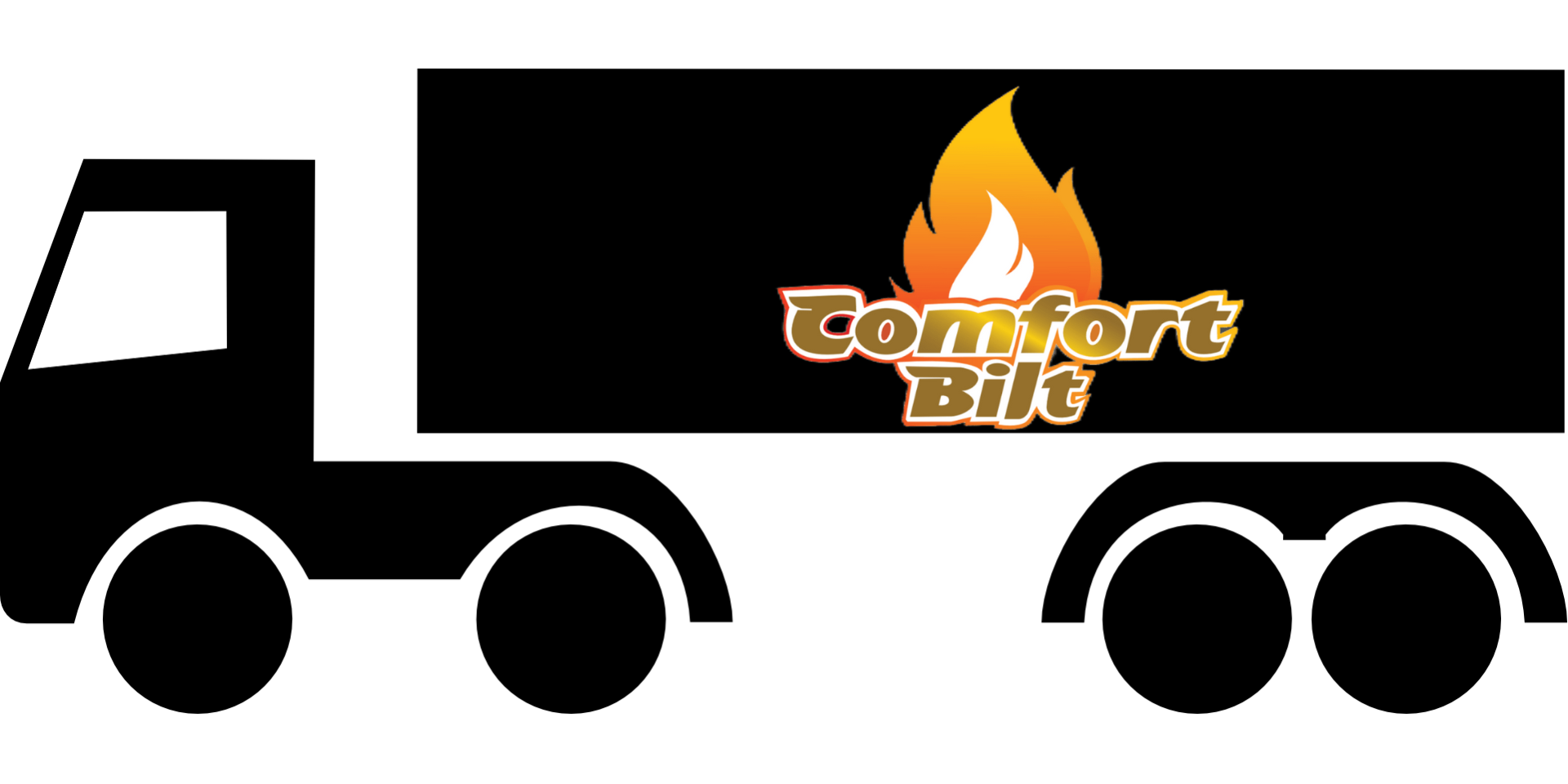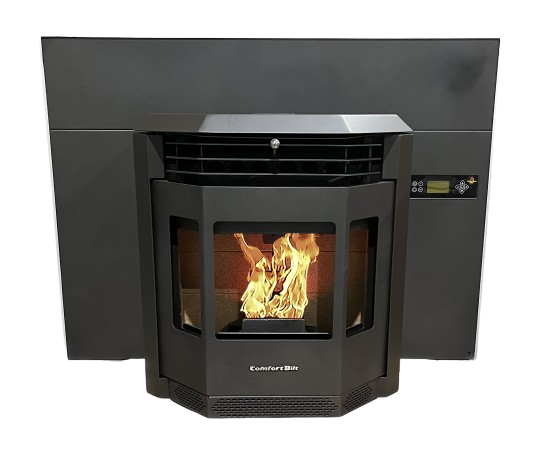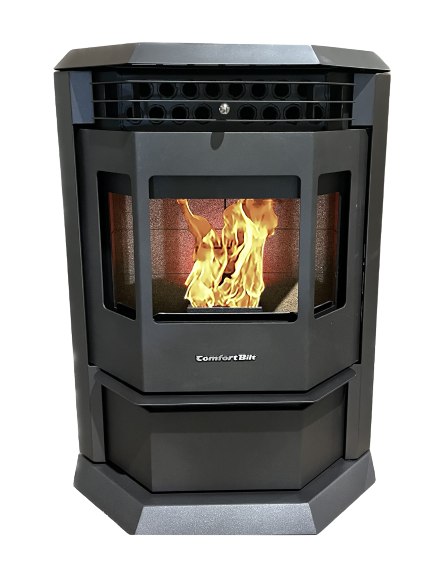Are Pellet Stoves Considered Renewable and Sustainable home heat?
Introduction:
In an era of heightened environmental consciousness, the quest for sustainable and renewable heating solutions has never been more critical. Amidst this search, pellet stoves and pellet stove inserts have emerged as a promising alternative for those seeking to reduce their carbon footprint while keeping their homes warm and cozy. But are pellet stoves truly "renewable" and "sustainable"? This blog delves into the heart of the matter, dissecting the intricacies of pellet stove technology and fuel sources to answer this pressing question. As we explore the renewability and sustainability of pellet stoves, we will unravel their potential to usher in a greener, cleaner, and more energy-efficient era of home heating.
Renewability of Pellets:
At the heart of the debate surrounding the sustainability of pellet stoves and pellet stove inserts lies the source of their fuel - wood pellets. Unlike finite fossil fuels such as oil and coal, wood pellets are derived from renewable resources, often comprising sawdust, wood chips, and other byproducts of the lumber and timber industries. These materials are carefully selected to ensure minimal environmental impact and, when managed responsibly, contribute to the regrowth of forests, thus maintaining the renewability of pellet production. To read more about the history of wood pellets, pellet stove inserts and pellet stoves; CLICK HERE
Renewability of Pellets (Continued):
Sustainable forestry practices are pivotal in this equation. Responsible forest management ensures that the trees used for pellet production are replaced through planting and regeneration, resulting in a carbon-neutral cycle. When properly managed, this cycle guarantees a consistent supply of biomass for pellet stoves without depleting our natural resources. It's these qualities that underscore the renewable nature of the fuel used in pellet stoves, positioning them as a greener choice in the heating landscape. Pellet stoves make # 2 on this list of the 7 Sustainable Heating Options to Keep You Warm This Winter.
Sustainability of Pellet Stoves:
The sustainability of pellet stoves and pellet stove inserts extends beyond the renewability of their fuel source to encompass their operational efficiency and environmental impact. Here's how these innovative heating solutions contribute to a greener, more sustainable future:
• Efficient Fuel Combustion: Pellet stoves are designed for optimal fuel combustion, boasting efficiency rates of around 70-90%. This means they can extract more heat from each pellet, resulting in less waste and reduced fuel consumption compared to traditional wood-burning stoves or open fireplaces. To see Comfortbilt pellet stoves and pellet stove inserts EPA Test Reports; CLICK HERE
• Lower Carbon Footprint: Pellet stoves emit significantly fewer greenhouse gases, particularly when compared to oil or coal-based heating systems. The lower carbon footprint arises from the efficient combustion and the fact that the carbon released during pellet burning is offset by the carbon absorbed by trees during their growth.
• Reduced Dependency on Fossil Fuels: By using renewable and sustainably sourced pellets, pellet stoves reduce the reliance on finite fossil fuels. This diversification of energy sources is a crucial step towards a more sustainable energy mix in homes.
Pellet Stoves are the cleanest solid fuel according to energy.gov: Click Here
While pellet stoves offer clear sustainability benefits, it's essential to consider the full life cycle, including production, transportation, and disposal, to ensure that they align with your environmental goals. Nevertheless, these pellet stoves undeniably represent a positive step towards more sustainable heating solutions, offering an efficient and eco-friendly way to keep your home warm.

Conclusion:
In the quest for renewable and sustainable heating solutions, pellet stoves emerge as a promising option. Their capacity to harness the renewability of wood pellets and operate with impressive efficiency is undeniably an environmental boon. These stoves offer a lower carbon footprint and improved indoor air quality, making them an attractive choice for environmentally conscious homeowners.
However, it's essential to acknowledge that the sustainability of pellet stoves is not without its challenges. Considerations such as transportation emissions, responsible sourcing, and overall life cycle assessments play pivotal roles in determining the environmental impact. Furthermore, while they exhibit clear advantages when compared to traditional wood stoves, natural gas heating, and electric heating, local variations and regulations can influence the overall sustainability of pellet stoves.
For those considering pellet stoves as a renewable and sustainable heating solution, careful choices and adherence to best practices are key. Opting for certified stoves, sustainably sourced pellets, and taking advantage of government incentives and policies can enhance the positive environmental impact. Ultimately, pellet stoves have the potential to contribute to a greener, more sustainable future in the realm of home heating, provided we navigate the complexities of their use with a mindful eye on sustainability.

Challenges and Considerations:
While pellet stoves hold promise as renewable and sustainable heating solutions, it's important to acknowledge the challenges and considerations that can impact their overall environmental performance:
• Transportation Emissions: The carbon footprint of pellet stoves can be influenced by the transportation of pellets from production facilities to consumers. The longer the transport distance, the greater the associated emissions. To mitigate this, consider sourcing pellets for your pellet stove insert locally to reduce transportation impacts.
• Cost and Availability: The cost and availability of wood pellets can vary depending on your location. In some areas, they may be more expensive than other heating options, while in others, they could be cost-effective. Consider the local market and pricing when evaluating the feasibility of pellet stoves.
• Maintenance and Operation: Proper maintenance and operation are key to the sustainability of pellet stoves. Regular cleaning and maintenance are essential to ensure efficient and clean burning. Inefficient pellet stoves can produce more emissions and waste pellets.
By addressing these challenges and considerations, you can make a more informed decision about whether pellet stoves align with your sustainability goals. While they offer numerous benefits, being mindful of these factors can help you maximize their positive impact on the environment and your energy efficiency.
To see our selection of pellet stoves Click HERE.
To see our selection of wood stoves Click HERE.
To see our selection of pellet stove inserts for your fireplace Click HERE.







